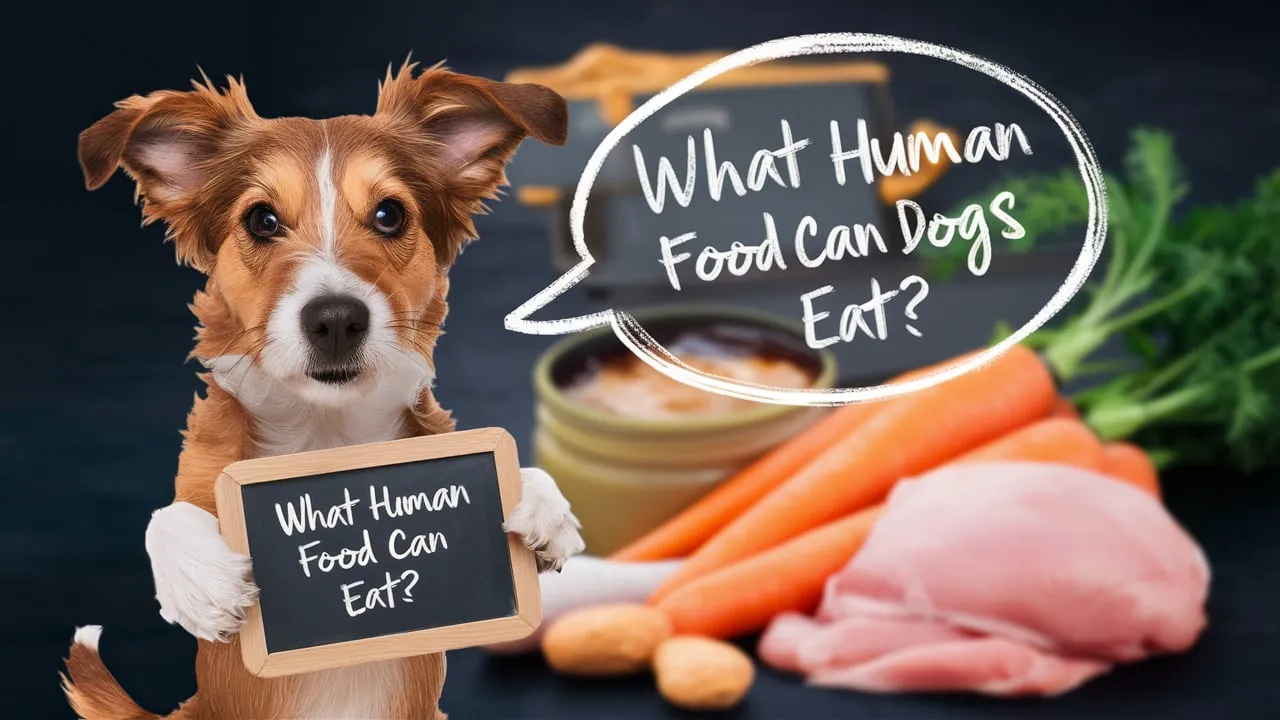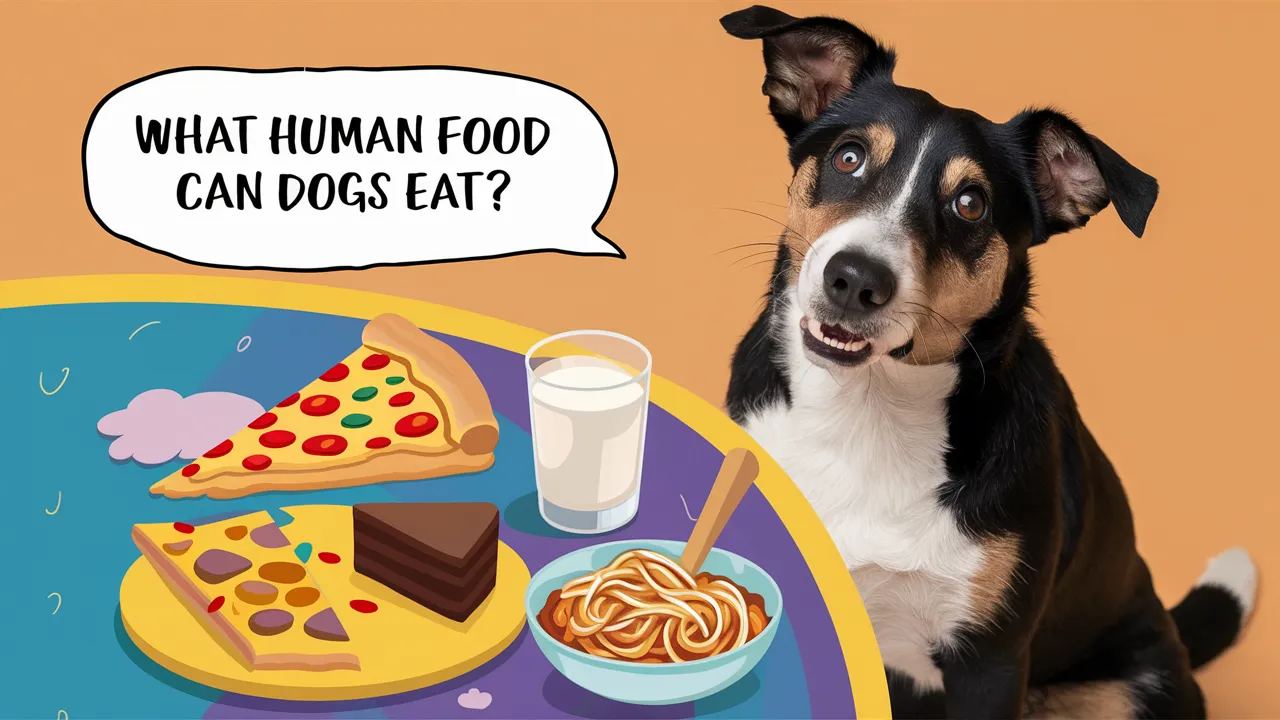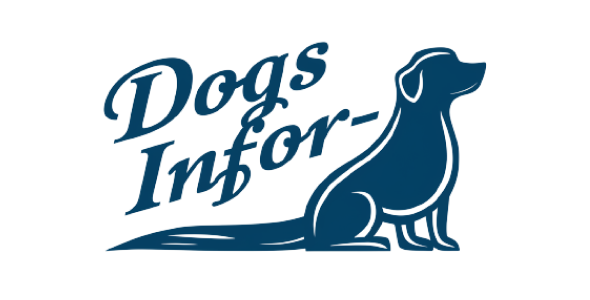What Human Food Can Dogs Eat? Feeding dogs human food can be a difficult task. While many foods are safe and even beneficial for dogs, others can be harmful or toxic.
Join with Dogs Infor to explore the world of human-friendly food, ensuring that your furry friend stays healthy and happy.
The Importance of a Balanced Diet
Essential Nutrients for Dogs
This section should highlight the key nutrients that dogs need to thrive:
- Protein: Explain that protein is essential for building and repairing tissues, as well as for producing enzymes and hormones.
- Fat: Mention that fat provides energy and helps the body absorb vitamins.
- Carbohydrates: Describe how carbohydrates are a source of energy and help regulate blood sugar levels.
- Vitamins: Explain that vitamins are essential for various bodily functions, including vision, immunity, and bone health.
- Minerals: Mention that minerals are crucial for bone growth, muscle function, and nerve health.
The Role of Dog Food
This section should discuss the importance of choosing the right dog food:
- Complete and Balanced: Explain that a complete and balanced dog food provides all the essential nutrients your dog needs in the right proportions.
- Age and Activity Level: Mention that the best dog food for your dog will depend on their age, breed, and activity level.
- Quality Ingredients: Encourage choosing dog food made with high-quality ingredients, such as real meat, fruits, and vegetables.
- Avoid Additives: Mention that it’s important to avoid dog food with artificial colors, flavors, and preservatives.
- Veterinary Consultation: Recommend consulting with your veterinarian to determine the best dog food for your furry friend.

What Human Food Can Dogs Eat? Safe Human Foods for Dogs
Fruits
This section should list safe fruits for dogs, including:
- Apples: Mention that apples are a good source of fiber and vitamin C, but remove the core and seeds before giving them to your dog.
- Bananas: Explain that bananas are a good source of potassium and vitamin B6, but they should be given in moderation due to their high sugar content.
- Blueberries: Mention that blueberries are a good source of antioxidants and fiber.
- Strawberries: Explain that strawberries are a good source of vitamin C and antioxidants.
- Watermelon: Mention that watermelon is a refreshing treat, but remove the rind and seeds before giving it to your dog.
Vegetables
This section should list safe vegetables for dogs, including:
- Carrots: Mention that carrots are a good source of vitamin A and fiber.
- Broccoli: Explain that broccoli is a good source of vitamin C and fiber, but it should be given in moderation due to its potential to cause gas.
- Green Beans: Mention that green beans are a good source of fiber and vitamins.
- Peas: Explain that peas are a good source of protein and fiber.
- Sweet Potatoes: Mention that sweet potatoes are a good source of vitamin A and fiber.
Meat and Poultry
This section should list safe meat and poultry for dogs, including:
- Chicken: Mention that chicken is a good source of protein and is often used in dog food.
- Turkey: Explain that turkey is another good source of protein.
- Beef: Mention that beef is a good source of protein and iron.
- Lamb: Explain that lamb is a good source of protein and is often used in dog food.
Dairy Products
This section should discuss dairy products with caution:
- Lactose Intolerance: Explain that many dogs are lactose intolerant, so dairy products should be given in moderation or avoided altogether.
- Plain Yogurt: Mention that plain yogurt can be a good source of probiotics for some dogs, but it should be given in small amounts.
- Cheese: Explain that cheese should be given in moderation, as it can be high in fat and sodium.
Grains
This section should list safe grains for dogs, including:
- Rice: Mention that rice is a good source of carbohydrates and is often used in dog food.
- Oatmeal: Explain that oatmeal is a good source of fiber and can be a healthy treat for dogs.
- Corn: Mention that corn is a common ingredient in dog food, but some dogs may be allergic to it.

What Human Food Can Dogs Eat? Human Foods to Avoid
While some human foods are safe for dogs in moderation, many can be harmful or even toxic. Here’s a breakdown of foods to avoid giving your dog:
Toxic Foods
- Chocolate: Contains theobromine, a stimulant that can cause vomiting, diarrhea, hyperactivity, seizures, and even death in dogs.
- Grapes and Raisins: Can cause kidney failure in dogs.
- Onions and Garlic: Contain compounds that can damage red blood cells and cause anemia.
- Macadamia Nuts: Can cause weakness, tremors, vomiting, and hyperthermia in dogs.
- Xylitol: An artificial sweetener found in many sugar-free products, it can cause liver failure and death in dogs.
- Alcohol: Toxic to dogs and can cause liver damage, respiratory problems, and even death.
- Caffeine: Can cause hyperactivity, restlessness, and even death in dogs.
- Avocado: Contains persin, a toxin that can cause vomiting and diarrhea in dogs.
- Mushrooms: Some mushrooms are toxic to dogs and can cause liver failure and death.
- Raw Meat and Bones: Can contain bacteria that can cause illness in dogs, and bones can splinter and cause choking or internal injuries.
Foods High in Fat, Sugar, or Salt
- Fatty Foods: Can cause pancreatitis, a serious condition that can be fatal.
- Sugary Foods: Can contribute to obesity, dental problems, and other health issues.
- Salty Foods: Can cause dehydration and kidney problems.
Foods That Can Cause Digestive Issues
- Dairy Products: Many dogs are lactose intolerant and can experience digestive upset from milk, cheese, and ice cream.
- Raw Eggs: Can contain salmonella bacteria, which can cause food poisoning.
- Corn and Wheat: Can be common allergens for dogs.
Conclusion
Feeding your dog human food can be a rewarding way to provide variety and nutrition. By understanding which foods are safe and how to introduce them, you can enhance your dog’s diet safely.

Related Post
Dog Years To Human Years: What’s the Difference?
What Are Dog Bones Made Of? A Guide To Safe And Healthy
The Ultimate Guide To Dog Injection Schedule